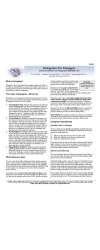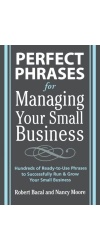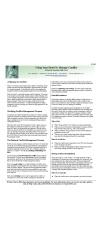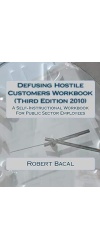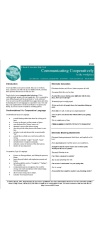Toxic communication is often below the level of consciousness and can occur without intending
Verbal abuse can take several forms. There’s the in your face yelling and swearing that we are all familiar with. Subtle verbal abuse is a bit different and can be even more toxic because it’s often not consciously intended to harm another person.
Below are ten guiding principles to help you either:
- Modify your own communication approach to ensure you aren’t habitually (or even occasionally) communicating in a toxic manner;
- Identify and bring to conscious thought, people and/or communication elements that you RECEIVE from friend, partner, or at work. That allows you to work with the other person to stop the flow of toxicity.
1. Don’t veil a comment in a question. Be more direct, and you’ll be more likely to get to solutions both of you can live with.
2. Don’t “bomb” someone with an emotional response that provides insufficient information to conduct a constructive conversation. Don’t say, “That’s stupid”, first because it‟s an attack, and second, because it contains no information to have a dialogue about whatever you are commenting on.
3. If your intent is to open up a discussion to help the other person cope with something that’s upsetting them, do so in a way that recognizes that he or she has a right to feel the way he or she does. And that those feelings are real.
4. Do balance the importance of your feelings and opinions with those of the other person. Don’t demean the feelings or opinions of an-other, but neither should you give up your own. Balance helps create a relationship with less pent up resentment.
5. Do focus on solutions to the issues less than how the other person has brought up the issues. Nobody is perfect. Give leeway for errors.
6. Do offer to help rather than judge from the sidelines. Judging is easy and usually point-less. Offers to help can turn a conversation around very quickly, if they are offered in the spirit of finding a solution that works for both of you.
7. Do focus on the present and the future, and NOT the past. The only value for looking at the past is to inform what can be done NOW, or next time. The past can’t be changed. The future is yours to mold together.
8. Don’t blame. Blame is about the past, and does nothing but cause anger and hurt.
9. Do be direct. Say what you mean, and mean what you say, and eliminate the indirectness of passive-aggressive phrases, and sarcasm.
10. Do take responsibility for what you do and say. Don’t take responsibility for what others do and say, but it’s good to keep in mind that in any relationship, people influence each other, but do not control each other.

